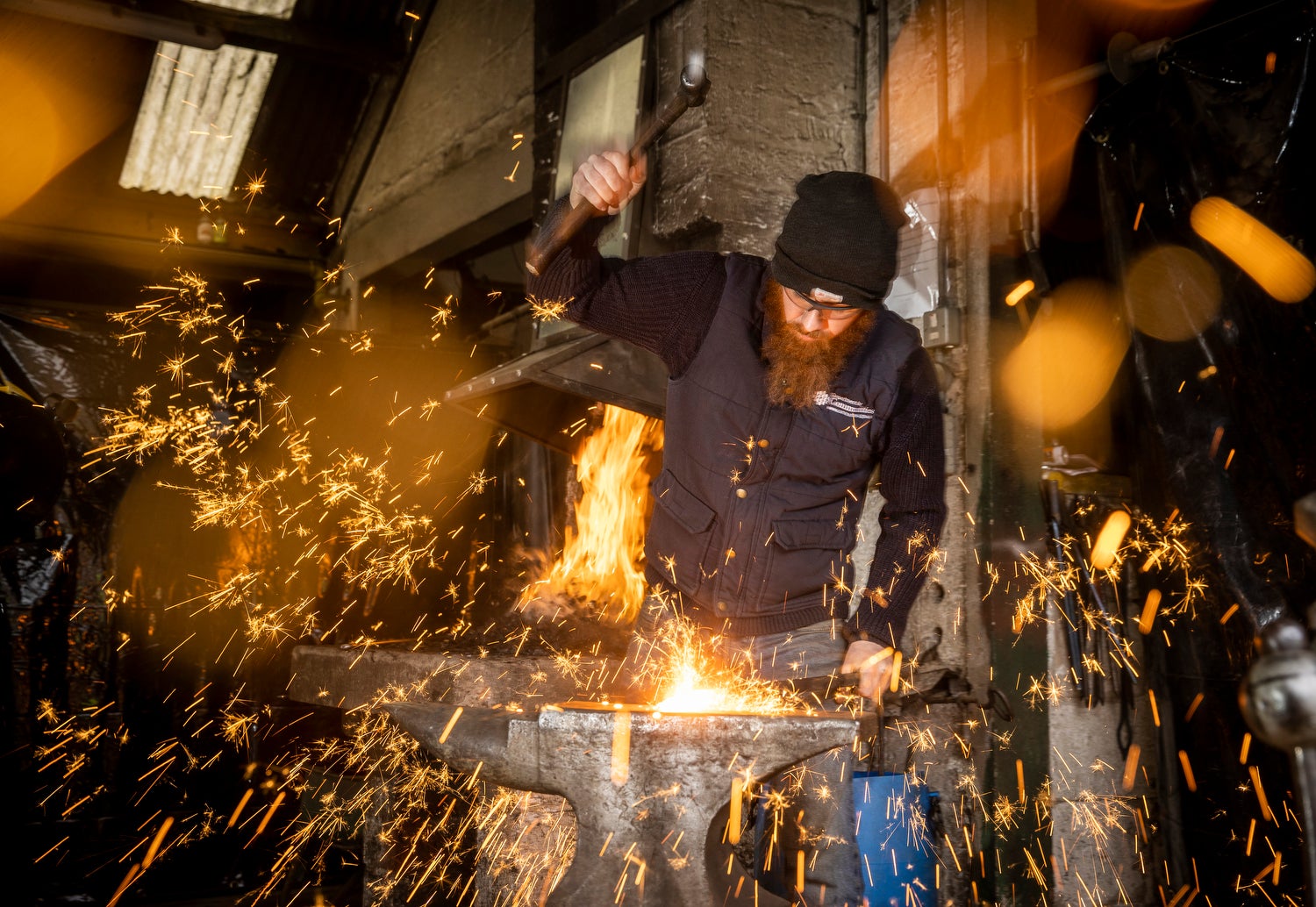Scheme to preserve ancient craft skills expanded across island of Ireland
A pilot project in Northern Ireland saw six students undergo specialist training to learn techniques needed to maintain old monuments and buildings.

A pilot project to revive the ancient craft skills needed to maintain historic monuments and buildings is being expanded across the island of Ireland.
The bursary scheme initially saw six students undergo an almost year-long training course in Northern Ireland to learn the stone masonry, thatching, metal forging and woodworking techniques required for heritage restoration work.
The NVQ training was supported by the Prince’s Foundation education charity and delivered by the Historic Environment Division of Stormont’s Department of Communities.
Six students with skills and experience in building trades successfully applied to undergo the specialist training.
Impressed by this success, the Prince’s Foundation, collaborating with the Allchurches Trust, has now committed to extend the bursary scheme in Northern Ireland and also widen the initiative across the island to run similar training in conjunction with the Heritage Council in the Republic of Ireland.
The six students who participated in the pilot were based at the Historic Environment Division’s heritage depot near Moira, Co Down – a little-known facility used to repair and store items from the 186 historic momentums and buildings it has responsibility for across Northern Ireland.
Those sites include Carrickfergus Castle, Navan Fort, the monastic remains on Devenish Island in Co Fermanagh and Londonderry’s Walls.
The depot houses a blacksmith’s forge, stone-cutting workshops and woodworking rooms that are used in the never-ending efforts to preserve and restore the region’s physical history.
It also serves as a store for a wide range of different types of stone and rock used in the restoration projects.
Of the six students who took the training, three have already secured jobs with the division and are now working full time on heritage maintenance and another is due to join in the new year. The other two have secured similar roles in Great Britain.
Louis Emmett, 52, had spent his working life as a bricklayer before entering the bursary scheme.
The Belfast man now works full time at the heritage depot and, like the other craftspeople who secured jobs there, is about to undergo further training that will enable him to teach the skills to the next intake of students.
Mr Emmett said he had always had an interest in restoration work but up until he saw the bursary advertised had never known how to get into the field.
He said working on restoration has required a “completely different mind-set”.
“In the construction sector, it’s more profit based, you know you get it done and built as quickly as possible,” he said.
“Whereas with the heritage, if you go too quickly you could destroy something very easily, you have to take care and just take time and consider what you’re doing more than anything.
“You’re trying to preserve things for the future generations and to keep it in as best possible condition as you can for them.”
Fellow course participant Stephen Hamilton had been a stonemason for 15 years before gaining a place on the bursary scheme.
The 40-year-old from Newtownards said one of the most important skills he had learned is “patience”.
“The buildings that you work on, the heritage buildings are very old buildings and it’s good to be a part of that, to help maintain the structure on them and try and maintain some of the wee features,” he said.
“It’s a nice feeling to know that they’re going to be there long after I’m gone.”
Philip O’Neill, head of State Care Operations for Historic Environment Division, said the pilot had brought through a new generation of craftspeople at a time of concern over a widening skills shortage in the heritage sector.
He said the expansion of the project would help deepen the talent pool needed to maintain historic sites for decades to come.
“We have the opportunity to get students from across Ireland working on various heritage projects across Ireland,” he said.
“And that’s going to be a fantastic opportunity.”
Ben McCabe, who is originally from Co Cavan, will lead the All-Ireland Heritage Skills Programme for The Prince’s Foundation.
“Craft skills training is needed to create a shared network of practitioners and specialists in the heritage building craft sector who can work across the whole island of Ireland,” he said.
“Not only are these skills essential in ensuring appropriate repair and maintenance of heritage buildings can take place, they are also an opportunity to demonstrate how local materials and local knowledge can be utilised in the future as we strive towards a more sustainable world.”
A spokesperson for the Heritage Council said: “At the Heritage Council we believe that it is crucial to preserve the knowledge and skills that embodies many of our traditional building skills and crafts and which have shaped our built environment.
“Our exciting new partnership with The Prince’s Foundation and the Historic Environment Division Northern Ireland will strengthen the All-Ireland Traditional Skills Programme by offering four bursaries for students in 2022.
“We look forward to working with our partners in achieving our shared objectives to ensure that building and craft skills are passed on to the next generation of master craftspeople.”
Bookmark popover
Removed from bookmarks